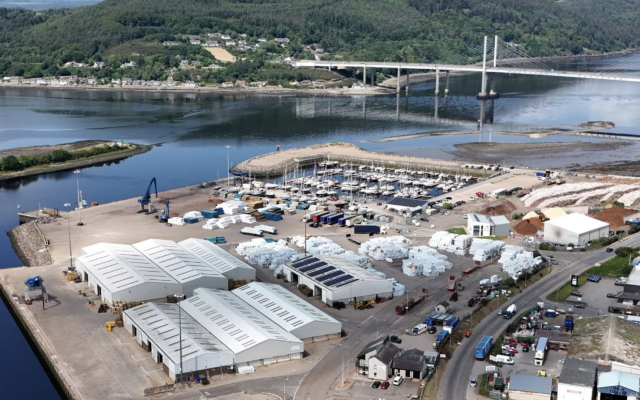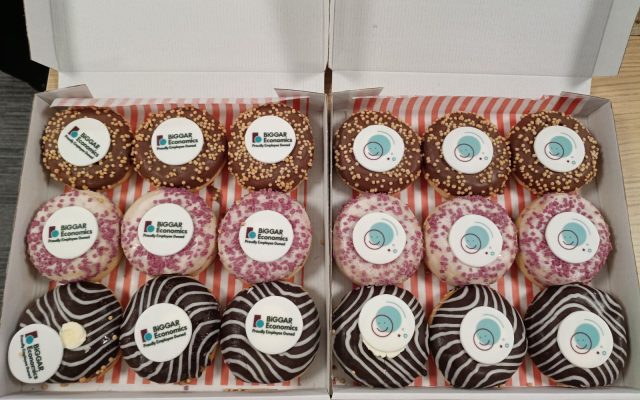
Posted 30.01.26
Economic Impact of the Port of Inverness
BiGGAR Economics was commissioned to assess the current economic impact of the Port of Inverness. We also assessed...
1 minute read
Earlier this year, BiGGAR Economics was asked by Forth Environment Link (FEL) to evaluate the Falkirk Food Futures Programme (FFFP), which was being delivered on behalf of a partnership between the local health and voluntary sectors, along with Falkirk Council. FEL’s website provides lost of information about its work on Food and Growing, including the Falkirk Food Futures Programme.
The Programme, launched in March 2022 at a time of recovery from the COVID-19 pandemic and a mounting cost of living crisis, addressed a need to improve local food security. It lasted for 7 months, ending in September 2022.
The FFFP supported 20 local community groups and benefited around 16,400 service users and participants
From a budget of £534,000, provided by the Community Renewal Fund (CRF), the Programme supported 20 local community organisations to expand the reach of their services, including improving their food growing and cooking facilities. In total, around 16,400 service users and participants benefitted from the 20 supported projects.
As well as improving facilities, the community groups used the funding to develop skills and volunteer capacity, and host events which brought communities together to reduce isolation. Many of the projects support marginalised groups, including people with sensory loss or impairment, older people, those living on low incomes, minority ethnic groups, and refugees. Some of the projects also delivered practical training courses for their volunteers and service users, which on some occasions led to employment.
When asked what impact the Programme had on their organisation:
In addition, the Programme funded targeted training for community organisations, which improved their digital skills and mental health support was offered to volunteers who were working with vulnerable people. The Programme also delivered education courses aimed at young people to raise awareness around food growing and cooking. On top of this, a slate of 45 community food education events were hosted to raise awareness around food sustainability.
The Programme delivered 62 WELLBYs, against a target of 23
Given the nature of the Programme, its central purpose would be missed by a typical economic impact approach which focused only on the number of jobs created and the Gross Value Added (GVA) generated. Therefore, our evaluation followed recent guidance from HM Treasury by calculating the wellbeing impact it generated in terms of WELLBY’s. One WELLBY equates to a one-unit change in life satisfaction on a 0-10 scale, per person per year. The HM Treasury guidance proposes that one WELLBY has a monetary value of £13,000. Given the scale of project funding invested (excluding overhead costs), the FFFP needed to deliver 23 WELLBYs to “break even” in terms of value for money. We estimated that the Programme delivered 62 WELLBY’s, highlighting the value and scale of impact the Programme created in a relatively short space of time.
Our evaluation concluded that the Programme was well-designed, supportive, and timely, helping communities to recover from the pandemic and develop their skills and resources at a time of unprecedented national economic crisis. The Programme also created a legacy impact and provides a model intervention for other communities facing similar challenges. The achievement of these outcomes was greatly helped by the strong relationships which FEL has developed with local community organisations.
A copy of our report can be found at the link below:
Posted 16.01.23
Our latest news

Posted 30.01.26
Economic Impact of the Port of Inverness
BiGGAR Economics was commissioned to assess the current economic impact of the Port of Inverness. We also assessed...
1 minute read

Posted 12.12.25
New Stadium to Boost Aberdeen Economy
Be it plans for a multi-sports community stadium in Aberdeen, a new home for Manchester United, or the...
1 minute read

Posted 24.11.25
BiGGAR Economics becomes employee-owned
We are delighted to announce that BiGGAR Economics has become an employee-owned company. The shares in BiGGAR Economics...
1 minute read